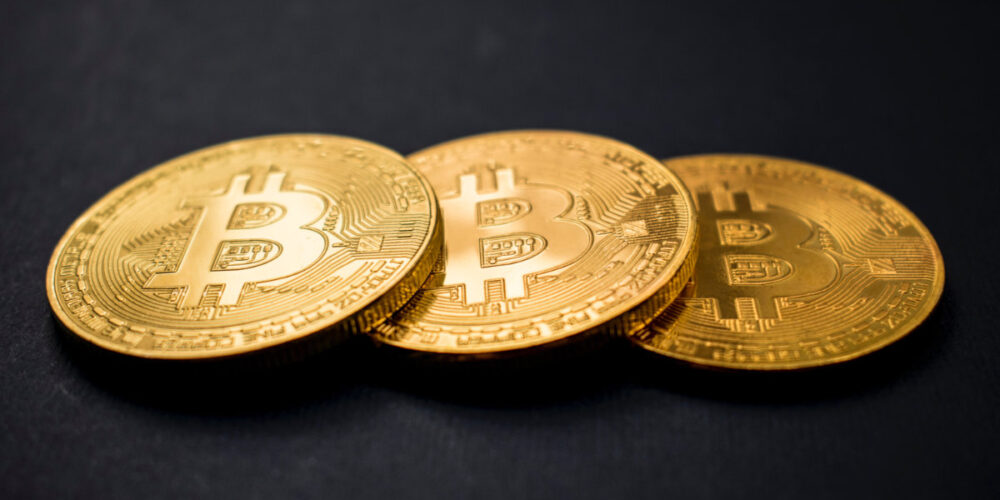*If you find this content interesting, sign up to my weekly newsletter, The Qi of Self-Sovereignty.
I am sure most of us, at some point or another, have been confused as to the effects of deflation vs inflation. This article is meant to be a quick overview of deflation, its effects on the dispersion of wealth and how we can better understand what is happening within our economy.
Before diving in, it should be noted that this article isn’t meant as an in-depth overview. There are countless articles that go in-depth into the causes, byproducts and outcomes of inflation and deflation. Instead, this article is meant to aid in getting the creative juices flowing when thinking about our economy and what taking advantage of deflation’s favourable properties may look like. With all that being said, let’s jump in.
To start, let’s go over a quick, simplified tool for breaking down inflation and deflation:
Inflation -> Consolidation of Wealth -> Centralization of Power
Deflation -> Dispersion of Wealth -> Decentralization of Power
Inflation (progressive increase in prices)
Generally speaking, inflation is caused by an increase in the money supply due to monetary intervention. This increase in the money supply diminishes the purchasing power causing goods, services and assets to increase in price. This creates a disincentive to save as one day to the next your currency purchases less. People recognize this loss of purchasing power which leads to:
- a) Smart money flowing into assets in order to protect against the destruction of purchasing power.
- b) The average Joe spending their money on consumables and services, as their money purchases more today than it will tomorrow.
With the upper-class holding in-demand assets that are appreciating in value (in dollar terms) and the lower class having exposure to cash that is quickly losing purchasing power, you start to see a consolidation of wealth in the minority. To put it simply, inflation leads to wealth inequality and a centralization of power.
Deflation (progressive decrease in prices)
With the information age in full swing, innovation is flourishing globally, causing an incredible growth in technological advancement. With technology being inherently deflationary, we are able to get more for less as we increase the efficiency of resource extraction, increase the spread of information and knowledge and reduce the manpower needed to produce and construct.
Suppose we were to have a currency, such as Bitcoin, with a fixed monetary supply, unable to be expanded at will. The currency should accrue this increased value created by technology, leaving us with goods, services and assets that decrease in price over time.
With the upper-class holding assets and the lower-class having exposure to cash, with an increase in purchasing power, we should see a dispersion of wealth as the cost of living decreases, and the cost of assets becomes more attainable. This dispersion of wealth would be down to the fact that a static supply currency is able to take advantage of the value being created by technology, resulting in a reduction in prices, making everything easier to access. This would ultimately lead to a greater decentralization of power.
When we look at inflation and deflation in this light, it is clear how deflation allows for this dispersion of wealth and a decentralization of power. This sounds a lot like it’s giving power back to the people and creating equality, does it not? Yes, however, let’s define equality.
Equality ≠ freedom, equality is the antithesis of freedom
In today’s media, we tend to hear a whole lot about equality. It is easy to be swayed to believe that equality gives everyone an equal footing, equal say, and equal status in society, to name a few. The reality is that equality is very often misunderstood. What most people are struggling to articulate but really want is equality of opportunity… not equality.
We have seen attempts to implement equality many times throughout history, usually under totalitarian and authoritarian regimes pushing not-so-great representations of communism and socialism. The truth of the matter is that equality is the antithesis of freedom. Equality results in a classless society where it doesn’t matter how much you try and persevere, you are seen as an equal to everyone else. Your endeavours are only registered as part of the collective. This results in an economy where you are unable to capitalize on your own personal ingenuity and hard work. It does not promote innovation, it does not promote risk-taking, and it does not promote freedom of speech. You are unable to go against the grain for the betterment of yourself and/or the collective.
It should now be evident that what is more important is to focus on equality of opportunity. This would ensure we all start out on roughly the same foot; we all have access to education, healthcare and welfare while also having a voice in society. But, more importantly, we are all able to follow our passions and interests, dedicate time to our pursuits, and if our pursuits offer value then we are rewarded. This not only benefits us, the individuals, but the human race as it encourages innovation and ingenuity.
In a truly democratic, capitalistic economy, we will always have some form of wealth inequality. But, as explained above, we should embrace this as it gives people something to strive for. Where wealth inequality becomes detrimental is when this consolidation of wealth is at the expense of the lower class and results in poverty, social unrest, and oppression. Therefore, we should not expect wealth inequality to disappear, but rather, we should focus on trying to disperse and reduce extreme wealth inequality caused by centralization. This will allow for a more prosperous, innovative economy.
Taking advantage of the deflation
Under a deflationary world, we are allowing technological advancement to drive up the currency’s purchasing power. However, we can only reap the rewards if we fix our money supply. We need to prevent the destruction of purchasing power through monetary expansion. If we can fix our money supply, this will allow the currency to capture any technological gains resulting in the cost of goods, services, and assets to slowly decline as the currency’s purchasing power increases.
You may be wondering, in a deflationary world, surely not everything will go down in price? This is an interesting thought to ponder. Deflation allows us to get more for less as the cost of goods, services and assets decrease. However, that doesn’t mean everything will always fall in price. In the short term, adoption can out-compete deflation, or in other words, demand can outstrip supply. Therefore, you’ll have assets in the short term that will appreciate in price up until market saturation. At that point, technology takes hold, and the price slowly starts to decline. Examples of this could be startups offering true value, houses in high-demand areas, supply constrictions causing shortages of goods etc.
Inflation and deflation can’t be the only factors in centralization or decentralization?
The example of deflation being decentralizing and inflation being centralization is a simplistic one that helps you mentally structure the potential outcomes of inflationary or deflationary decisions. However, the reality is that there are many factors that influence our economy when it comes to centralization. Some of these factors include:
- The war machine, that is the government, is able to centralize power through military and legislative force
- Lobbying aids the centralization of power by enabling large corporations and individuals the ability to influence legislation in order to protect their reach
- Capitalism has natural centralizing properties as if you are able to offer value, people are willing to pay, which in turn consolidates wealth. We just have to ensure we allow for creative destruction to take hold and fair competition to exist
Note: For this article, the goal is to keep it short, but I highly recommend digging into the centralizing effects of war, lobbying and capitalism and what can be done to reduce their effects.
How can we kickstart this deflationary process?
Most would agree that the government does serve a purpose in society. Its purpose is to establish justice and domestic tranquillity, provide common defence, promote general welfare, and maintain liberty for its population. However, with all that said, the government’s primary interest should always be its people, not itself, and definitely not a small portion of its population. We, therefore, have to ensure that the government is held accountable for being fiscally responsible and keeping its population’s interests at heart. The easiest way to enact this change is to remove the monetary system from the clutches of the government.
By removing the monetary system from the government, you ensure that the government maintains its population’s interests at heart and acts as the service provider it was put in place to be. In addition, It encourages fiscal responsibility within the government as it is no longer able to self-fund. Therefore, if it does not offer value to society, it will not receive taxes, leading to a collapse of the government. This creates an opening for a new government offering true value to the people to take over. By removing the monetary system from the government and allowing a deflationary system to take hold, we should see the trickle-down effects of decentralization and wealth dispersion throughout our economy.
What are our options?
As it stands, attempting to remove the monetary system from the hands of the government is a tall order. Historically, governments haven’t tended to concede power for the betterment of the economy. However, we are in a unique period of history where we have another option, an alternative monetary system, one that is voluntary and therefore not forced upon us. That monetary system and currency is Bitcoin. What makes Bitcoin unique is that it displays the properties needed to take advantage of our deflationary world. With its decentralized network and a fixed total supply of 21million, as technology advances, value will only accumulate, causing Bitcoin to appreciate. You no longer have to hold a currency that can be devalued at will when the centralized power decides to increase the money supply.
To conclude, it can be easy to believe that wealth inequality and the centralization of power are natural phenomena and that the cost of goods, services, and assets should continue to increase over time. However, this does not have to be the case. These adverse side effects we face are only the byproducts of the inflationary monetary policy implemented by the government. As a democracy, the government is meant to be of service to people rather than the people being of service to the government. Therefore, we should voice our concerns, articulate our desire for equality of opportunity and vote with our money by choosing the monetary system we, the people, want. Not only will this incentivize fiscal responsibility within the government, but it’ll also reduce wealth inequality and promote innovation and prosperity in our economy.











Great article, i have a question – it is said that if people expect the prices to drop, they will stop spending in the present which will lead to a recession and unemployment.
do think this is just a short-term problem we will face during the transition and once everyone has adapted , people will spend only what’s necessary and save or invest the rest.
Hey Sahil!
Apologies for the delay. I’ve only just seen this comment.
To answer your question, I believe our global economy today is built on consumption. 68% of GDP is consumption. Therefore, when the Fed targets 2% GDP growth, they’re really saying 2% increased consumption. If we were to transition and adopt a currency, such as Bitcoin, which aligns with our deflationary environment, we would see an increase in purchasing power over time. So we’d be incentivized to save over consume, as you mention. This would drastically impact consumption, but I would argue that this isn’t bad. It’s just not what we are used to in this era of our monetary system. With increasing purchasing power, the desire to consume decreases. People will still spend, but the threshold for what they will purchase will narrow as they’ll buy more over time by not spending their money. I hope that somewhat answers the question. It’s a tough one as it is somewhat theoretical.